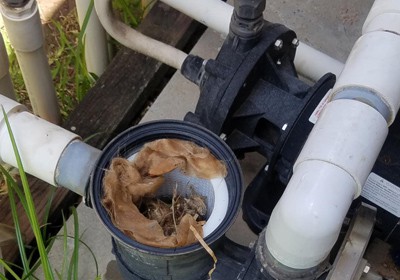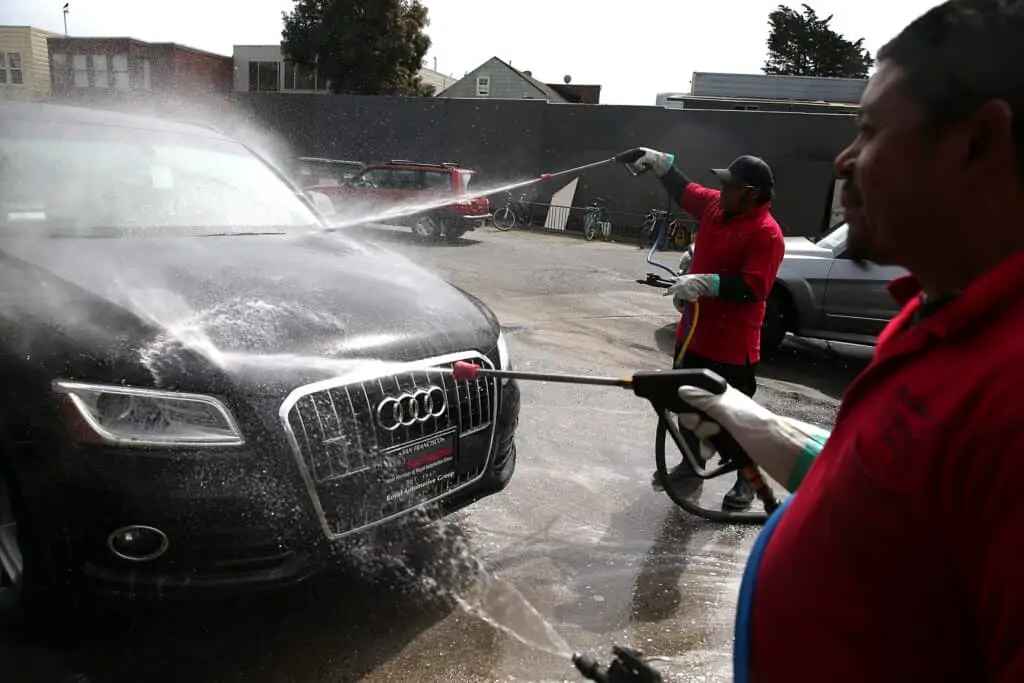Washing machines typically cost between $250 and $2,000. The price varies based on size, features, and brand.
Deciding on the right washing machine can make laundry a breeze. As technology evolves, so do the options and features available on these household staples. They range from basic, no-frills models that get the job done to high-end units with smart capabilities and energy-efficient systems.
Consumers should consider their laundry habits, space, and budget when choosing a machine. Durability is a key factor as well since a good machine should last several years. Remember to check customer reviews, warranty offers, and energy consumption to ensure you’re getting the best value for your investment. With a variety of choices out there, finding a washing machine that fits your needs and budget is more accessible than ever.
Factors Affecting Washing Machine Costs
When you’re in the market for a new washing machine, you’ll quickly discover that prices can vary widely. The cost of these appliances depends on a myriad of factors, ranging from the brand to the technological features they offer. Understanding what influences the price can help you make an informed decision that balances your budget and your laundry needs. Let’s explore some key factors that impact how much you’ll pay for a washing machine.
Brand Reputation And Popularity
The brand of a washing machine plays a pivotal role in determining its price. Renowned brands often command a premium due to their reputation for reliability, quality, and customer service. Consumers trust well-known brands to deliver performance and durability, which can justify the higher cost. In contrast, less popular or new market entrants might offer competitive pricing to attract buyers, potentially offering great value for those willing to explore beyond the household names.
Capacity And Load Size
Washing machines come in various capacities, tailored to meet the laundry needs of different household sizes. Larger capacities generally mean a higher price tag, as these machines can handle more clothes in a single load, saving time and energy over the long run. Compact models, suitable for individuals or small families, might be more cost-efficient upfront but could be less economical with increased loads over time.
Energy Efficiency Ratings
In today’s environmentally conscious market, energy efficiency is a prominent factor in the cost of washing machines. Models boasting high efficiency ratings, such as ENERGY STAR® certified machines, can help save on utility bills and might be eligible for rebates. While these units may have a higher initial purchase price, the long-term savings on energy costs can be significant, making them a smart investment for the eco-friendly and budget-conscious consumer.
Average Prices Across Different Types Of Washing Machines
When it comes to choosing a washing machine, consumers often weigh the initial investment against the appliance’s features and long-term benefits. The market offers a wide array of models, each with a different price tag, making the average cost variable. Explore the standard price ranges for various types of washing machines to determine which option suits your preferences and budget.
Top-loading Washing Machines
Top-loading washing machines, beloved for their traditional design and ease of use, stand as a cost-effective choice for many households. Prices for these units can differ substantially based on capacity, brand, and technology:
- Basic models typically start around $300 and can be an economical choice for those seeking simplicity.
- Mid-range versions, with advanced features like high-efficiency or steam settings, may range from $500 to $800.
- For high-end machines equipped with the latest tech, such as smart-home compatibility or large capacity, the cost can increase to over $1000.
Front-loading Washing Machines
Front-loading washers are well-known for their efficiency and modern features. The front loading mechanism allows for better water and energy-saving capabilities, which can be a deciding factor for environmentally conscious buyers:
- Entry-level front-loaders start at roughly $600, providing improved wash quality over lower-end top-loaders.
- Mid-tier models, offering a balance of efficiency and features, typically fall between $800 and $1,200.
- At the high end, expect luxury amenities and larger capacities, with prices soaring to $1,500 or more.
Compact And Portable Washing Machines
Compact and portable washing machines present a solution for tight spaces or for those who frequently move. Despite their smaller size, they manage to pack in a punch when it comes to functionality:
- Portable washers are the most budget-friendly, starting from as low as $100 for mini models, suitable for small loads.
- Standard compact models are priced a bit higher, generally between $250 and $500, reflecting their added convenience and features.
- For high-end compact units with greater capacity and efficiency, prices can escalate to about $800.
Additional Expenses To Consider
While the sticker price on a washing machine can tell you how much you’ll need to pay upfront, smart shoppers know to budget for a few additional expenses. These costs, often overlooked, can affect the total investment in your laundry appliance. Let’s explore these extra expenses that deserve your attention before making a purchase.
Delivery And Installation Fees
Many retailers charge separate fees for delivering and installing your new washing machine. Prices can vary depending on the distance, access difficulty, and service complexity. Some shops may offer promotions with free delivery, but installation services will often come with a charge. It’s crucial to:
- Confirm with the seller any delivery and installation fees before purchasing.
- Check for potential savings through bundled services.
Extended Warranty Options
An extended warranty can help protect your investment beyond the standard manufacturer’s warranty. This coverage typically includes:
- Labor and parts costs after the original warranty expires.
- Service calls for repairs.
Assess the long-term value and consider your usage patterns before opting in for an extended warranty plan.
Maintenance And Repair Costs
Regular maintenance ensures your washing machine runs efficiently, while also extending its lifespan. Anticipate expenses such as:
| Maintenance/Repair | Approximate Cost |
|---|---|
| Replacement Hoses | $20 – $50 |
| Drum Cleaning | $10 – $30 |
| Service Visits | $75 – $150 |
Avoid unexpected repair costs by considering a service plan or setting aside a maintenance fund.
How To Find The Best Deals
Securing the best deals on washing machines can feel like a daunting task with prices fluctuating across a broad spectrum. Yet, savvy shoppers know that substantial savings are within reach when they employ the right strategies. In this section, let’s explore the most effective ways to squelch costs and scope out those eye-catching deals that keep your finances afloat while snagging a quality appliance.
Comparison shopping online
Comparison Shopping Online
Diving into the digital marketplace offers the advantage of comparing prices with mere clicks. Start with reputable online retailers and use comparison tools to weigh the costs, features, and benefits. Here’s a bulletproof plan:
- Visit top retailer websites: Target, Best Buy, and Amazon often have competitive pricing.
- Use comparison sites: Platforms like Google Shopping or PriceGrabber aggregate prices, helping you spot the best.
- Check customer reviews: They often reveal hidden deals or promotions and gauge product satisfaction.
Seasonal sales and promotions
Seasonal Sales And Promotions
Mark your calendar for seasonal sales events. These are prime times when retailers slash prices on home appliances:
| Season | Event | Typical Discounts |
|---|---|---|
| Spring | Memorial Day Sales | 10% – 30% |
| Summer | Labor Day Sales | Up to 40% |
| Fall | Black Friday / Cyber Monday | 20% – 50% |
Signing up for newsletters or following your favorite stores on social media can also alert you to flash sales or exclusive member deals.
Negotiating with retailers
Negotiating With Retailers
Negotiation is an art that can lead to substantial savings, especially with big-ticket items like washing machines. To negotiate like a pro:
- Research the market value of the model you desire.
- Approach the retailer armed with knowledge of competitor pricing.
- Ask about price adjustments, lower-cost model matches, or even bundle deals.
Remember, retailers are often willing to work with you to close a sale, especially if you’re ready to purchase on the spot.
Frequently Asked Questions For How Much Do Washing Machines Cost
What’s The Average Price Of A Washing Machine?
The average cost of a washing machine varies from $250 to $2,050. This range reflects basic models to high-end units with advanced features like steam cleaning and smart technology.
Can Energy-efficient Washers Save Money?
Energy-efficient washing machines can save you money on utility bills in the long run. They use less water and electricity, leading to annual savings that can offset the initial higher purchase price.
How Long Do Washing Machines Typically Last?
Washing machines typically last between 10 to 13 years. Proper maintenance and usage significantly impact the lifespan of the machine.
Do Top-loading Washers Cost Less Than Front-loaders?
Top-loading washers generally cost less upfront than front-loading models. Prices for top-loaders start as low as $350, whereas front-loaders tend to start around $500.
Conclusion
Navigating the vast selection of washing machines can be overwhelming. Prices vary greatly, influenced by features, capacity, and brand reputation. Investing in the right model that fits your budget and laundry needs is key. Remember, a little research goes a long way in ensuring value for your investment.
Happy washing!


